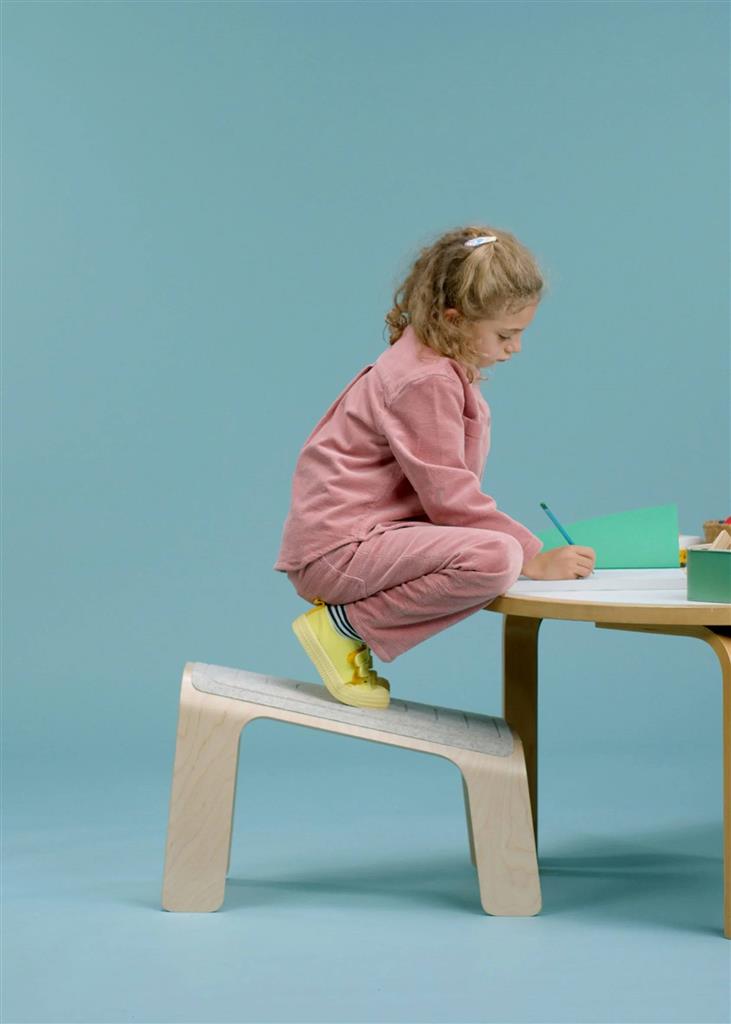
Studio Lentala, based in Amsterdam, has introduced the Rom & Lupa chairs, with a vision to enhance the physical and mental health of children. These chairs, aptly named Rom & Lupa, were meticulously designed as active sitting solutions, following in-depth research that revealed the adverse effects of passive sitting on the overall health of children. Here is a detailed report on FURNITURE DESIGN AND TECHNOLOGY (FDT).

According to Boris Lancelot, Founder, Studio Lentala, conventional chairs limit our daily movement patterns, restricting us to a handful of sitting postures, ultimately resulting in a lack of muscular diversity. This sedentary lifestyle contributes to poor physical fitness, health issues and diminished self-esteem, leading some to liken it to the adverse impact of smoking. In contrast, Studio Lentala believes that our bodies can comfortably assume more than a hundred sitting positions, a concept embraced in various cultures worldwide, including Japan and Indonesia. Inspired by this, Lancelot embarked on a mission to integrate these practices into Western sitting routines, which led to the innovative design of Rom & Lupa.
Drawing from non-Western cultures, where people naturally incorporate a diverse range of sitting postures into their daily lives, the Rom & Lupa chairs encourage active sitting without conscious effort. The chairs are designed so that over time, each posture becomes slightly uncomfortable, motivating children to effortlessly transition between sitting positions. Studio Lentala’s design philosophy seeks to transform sitting into an active engagement, promoting better physical and mental well-being for children. Collaborating with movement scientists Simon Caljouw and John van der Kamp, the chairs offer school-aged children freedom of movement while seating, thereby nurturing healthier habits.

The resulting chairs—Rom, featuring a sloped seating platform, and Lupa, with two felted areas connected by a lowered central section—empower children to explore eight distinct sitting positions. The innovative designs offer flexibility, encouraging children to choose postures that suit their unique needs and body types. To provide an even broader range of postures, the chairs adhere to the principle of variation, incorporating the most common universal sitting postures from diverse cultures and eras. These selected postures were refined through testing and experimentation, ensuring that the seats actively support the body’s requirements.
Image credit: Studio Lentala
Furniture Design India and the magazine FURNITURE DESIGN & TECHNOLOGY (FDT magazine) are from the trusted 22-year-old media house of SURFACES REPORTER and PLY REPORTER.
FDT is a B2B monthly bilingual magazine from India that shares the pulse of the furniture business in India and connects the manufacturers, OEMS, product designers, architects, showrooms, designers and dealers.
Read More© 2026 Furniture Design and Technologies.. All Rights Reserved. Developed by eyeQ Advertising